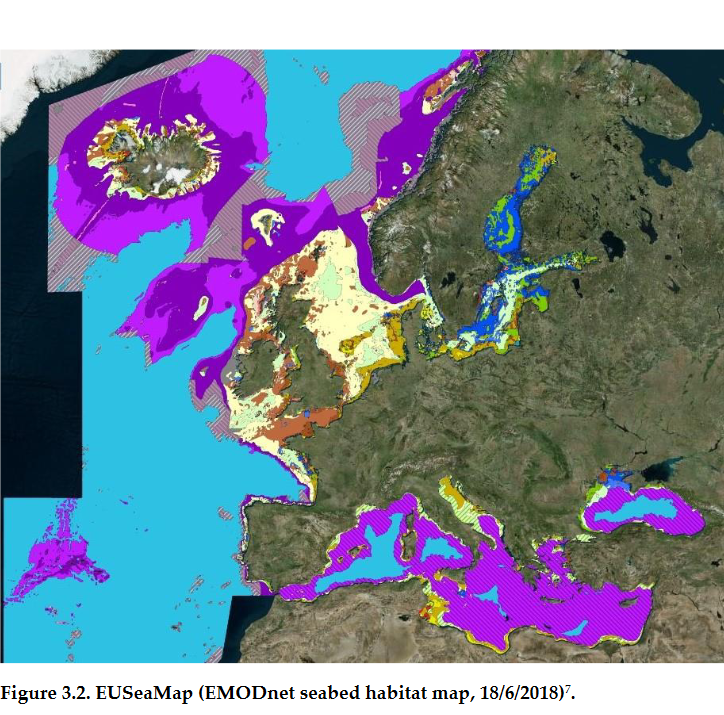Wageningen Marine Research Institute is a part of the wider Wageningen University and Research centre. The marine institute conducts independent scientific research and provides contributions and advice on marine monitoring, spatial planning, sustainable marine exploitation, fisheries and nature-based solutions to climate change.
Authors aimed to review the existing approaches to assessing the impacts of physical disturbance on seabed habitats as a result of fishing activities, and to use the results of the review to develop a concept and method of a pilot “European seafloor integrity account” (SIA). The review was to be based on the process led by the International Council for the Exploration of the Seas (ICES) to provide guidance on the assessment of the current state of seabed habitats, as well as the development and testing of indicators of fishing-induced pressures and their impact on these habitats. The authors therefore required the highest-possible resolution seabed habitat maps for across the EU, in order to determine the locations and extent of various habitats within fisheries areas.
EMODnet Seabed Habitat provided the coverage required for spatial assessments in all EU marine regions, as well as being the only EU-level consistent approach for the mapping of broad scale benthic habitats. These habitat maps were used in combination with spatial data layers of fishing intensity and pressure in order to review the current state of seabed habitats, and to calculate the pilot SIA. This highlights the importance of having a consistent approach to the classification of seabed habitats (i.e. the EUNIS system) in transboundary and international studies.
Authors were able to conceptualise and develop a method for calculating a pilot SIA, which was evaluated in the North Sea as ‘proof of concept.’ This study linked with the assessment of marine ecosystem services, the results of which could go on to support the EU and Member States in their 2020 goals on the Mapping and Assessment of Ecosystems and their Services (MAES), the development of broad scale seabed habitats and the development of accounting systems under Action 5 of Target 2 of the EU Biodiversity Strategy to 2020 and the post-2020 follow-up. EMODnet thereby enables policies to be supported with meaningful, objective and verifiable data.

Copyright Piet, G. (2018). Development of a pilot European seafloor integrity account to assess the state of seabed habitats from fishing pressure.
